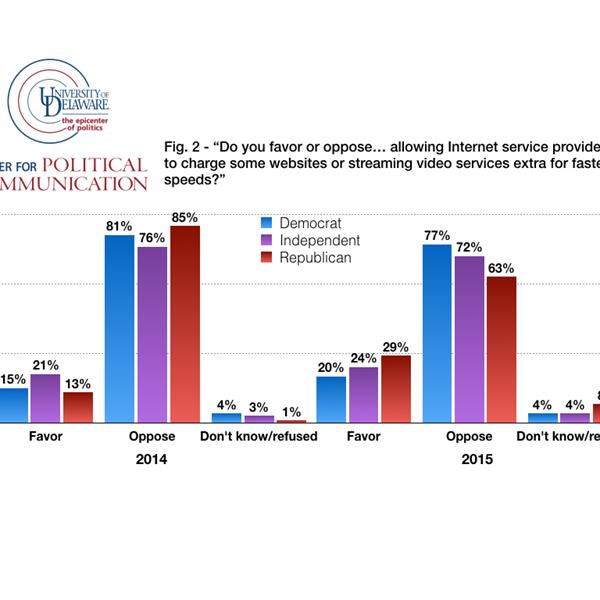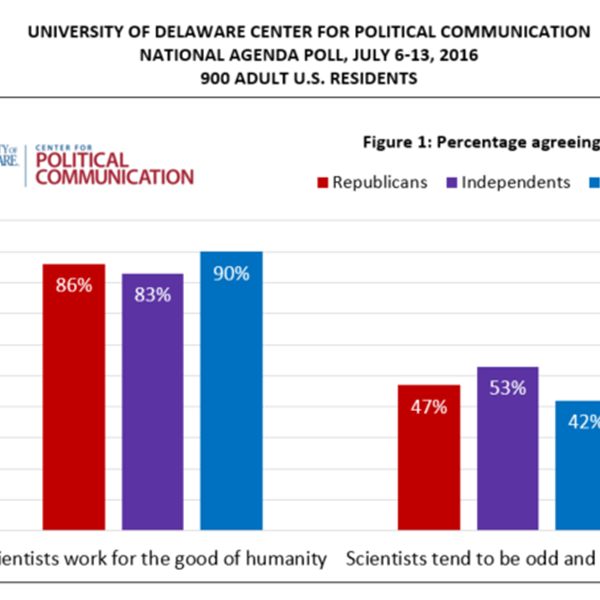Faculty in the College of Arts & Sciences pursue collaborative research agendas linked to political communication. They focus undergraduate students’ attention on the symbiosis between politics and communication, with special emphasis on digital technology’s growing role in campaigns and public policy debates. Faculty affiliated with the Center for Political Communication regularly conduct cutting-edge research through national and statewide public opinion polls. Studies sponsored by the CPC have received coverage in a wide range of news outlets, including the Atlantic, the New York Times, the Washington Post, USA Today, US News & World Report, the Wall Street Journal, Slate, and Wired.

National survey on rights and protections for transgender people
The CPC’s November 2015 national survey, conducted by CPC Director Paul Brewer, examined public support for transgender rights and protections. Despite age, gender, and political divisions, most people surveyed favored protection from discrimination for transgender individuals both in schools and in workplaces. A large majority also supported allowing transgender people to serve openly in the U.S. military. University of Delaware’s Communications and Public Affairs reported the study’s results in a November 2015 article, “Transgender Rights, Protections.”
Researcher(s):
Brewer, Dr. Paul R.

National survey shows public still opposes Internet ‘fast lanes’ but resists government regulation
As a federal court considers new national rules on Internet service, a November 2015 national survey by the University of Delawares Center for Political Communication shows most people still oppose Internet “fast lanes.” But the survey also shows Americans are reluctant to give the federal government power to regulate “net neutrality.” The study shows that a large majority of people surveyed still oppose Internet fast lanes (71 percent). Opposition is down from a similar survey one year ago (81 percent), when President Barack Obama announced his support for new net neutrality rules. Such rules would restrict Internet providers from offering “fast lanes” in the form of premium service to web streaming operations such as Netflix, Hulu and Amazon. University of Delaware’s Communications and Public Affairs published the findings in a December 2015 article, “Internet opinions.” Media outlets such as Delaware Public Media, Wired.com and Phys.org reported the UD study.
Researcher(s):
Brewer, Dr. Paul R.

National survey shows partisan and gender divides in perceptions of scientists, gender bias in science
Science is a prominent topic in the 2016 presidential campaign, with Hillary Clinton proclaiming, “I believe in science,” in her July 28 nomination acceptance at the Democratic National Convention. A national survey by the University of Delaware’s Center for Political Communication, conducted in July 2016, shows that most Americans have favorable views of scientists. Fully 84% of those surveyed agree that scientists are dedicated people who work for the good of humanity, while only 14% disagree. Fewer than half (47%) agree that scientists tend to be odd and peculiar people, whereas 50% disagree. Yet there is a party divide in perceptions of scientists. Among Democrats, 90% agree that that scientists are dedicated people who work for the good of humanity, with 53% strongly agreeing. Among Republicans, 86% agree with this, but only 43% strongly agree.
Researcher(s):
Brewer, Dr. Paul R.
